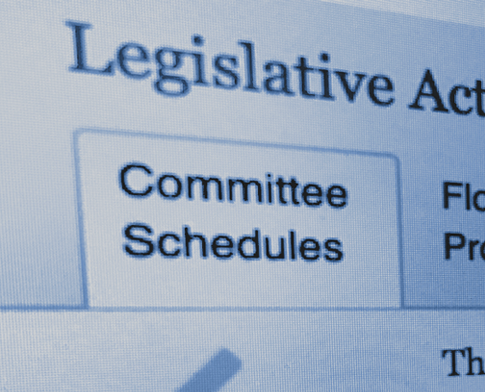Energy Update (May 18)
HEROES Act
On Friday (May 15), the House of Representatives will vote on Democrat’s $3 trillion coronavirus economic rescue plan, the HEROES Act. “We must think big for the people now because if we don’t it will cost more in lives and livelihood later,” House Speaker Nancy Pelosi (D-CA) said at the announcement.
“Not acting is the most expensive course,” Pelosi added.
President Trump and Senate Republicans objected to the proposal, saying not enough time has passed since the CARES Act to determine whether new legislation is necessary.
The bill includes $1.5 billion for low-income water bill assistance and a moratorium on utility service shutoffs for any entity receiving federal relief funds. The water assistance would be allotted through a program modeled on the Low Income Home Energy Assistance Program (LIHEAP), with funds distributed to states and tribes based on a formula that accounts for the severity of the coronavirus crisis and the prevalence of poverty.
Drinking water and wastewater utilities face a gap between the costs of operating their systems and payments they are receiving from customers.
The bill also offers direct assistance to biofuel producers that have been disrupted by the collapse in fuel demand. Over half of all U.S. biofuel production capacity has gone offline in the past five months. The legislation also creates a $50 million program for environmental justice grants to be administered by the Environmental Protection Agency (EPA).
Notably, Democrats left out any measures to address climate change or boost clean energy.[1]
To view a title-by-title summary, click here.
New Legislation
On Thursday (May 14), Senators Tom Carper (D-DE) and Lamar Alexander (R-TN) introduced the “Securing America’s Clean Fuels Infrastructure Act,” which would expand the Alternative Fuel Vehicle Refueling Property Investment Tax Credit, known as “30C,” and encourage private investment in clean refueling infrastructure.
The bill would extend the credit until 2028 and ensure that it can be applied to each item of refueling property, rather than on a per-location basis. It would also increase the cap on business investments from $30,000 to $200,000 for each item of refueling property.
“On America’s roads and highways today, gas stations are rarely farther than the next corner or exit. That’s not necessarily true for cleaner fuels,” Carper said in a statement.
“In order to meet our clean air and climate goal and lead the world in clean vehicle manufacturing, Americans must have greater access to hydrogen refueling and electric charging stations,” he added.[2]
To view the Senate Environment and Public Works Committee’s press release on the legislation, click here.
On Tuesday (May 12), Senate Energy and Natural Resources Committee Chairman Lisa Murkowski (R-AK) and Sen. Jim Risch (R-ID) introduced legislation to protect critical electric infrastructure, such as bulk power systems and natural gas pipelines.
The “Energy Infrastructure Protection Act” aims to “ensure that information critical to utility operations is not unintentionally exposed, as that could surrender America’s energy security to foreign adversaries,” Murkowski said.
The legislation would give the Federal Energy Regulatory Commission (FERC) and the Department of Energy broader authority to designate information relating to the grid as “critical energy infrastructure information,” while also allowing state and local authorities and utilities to request that materials be protected under this designation.
The bill comes after Trump announced his executive order that would ban foreign equipment that could pose security risks for the grid.[3]
Orphaned Oil Wells
The oil market crash that stemmed from the coronavirus pandemic and price war will likely trigger bankruptcies across the U.S. that will leave states holding a massive bill to seal up thousands of new “orphan” wells that pose pollution risks.
There are already tens of thousands of these wells spread across oil-producing states. States usually require deposits or bonding from operators to seal wells and ensure they are not leaking pollutants that can contaminate air or water supplies. However, these payments are often inadequate for the real cost to properly plug them.
Some states are sounding the alarm, including New Mexico, whose top land official Stephanie Garcia Richard said the cleanup of abandoned wells could cost the state billions. Before prices collapsed, the California Council on Science and Technology said that it faced a potential liability of $528 million to remediate fewer than 6,000 wells.
According to a report by the Interstate Oil and Gas Commission, orphaned wells will likely leave a huge financial burden on state taxpayers. The EPA said there are 3.11 million abandoned oil and gas wells across the U.S., with 2.15 million “unplugged.”
Orphan wells leak contaminants into groundwater and cause methane to migrate into aquifers. Orphaned wells were already a big problem, prior to the coronavirus pandemic. The potential for an increased wave of wells will be a concern to many oil and gas focused states moving forward.[4]
LWCF
Around 120 House members and hundreds of organizations are ramping up pressure on Congress to include mandatory funding for the Land and Water Conservation Fund (LWCF) and billions of dollars to address the backlog in national parks and public lands maintenance in the next round of coronavirus legislation. There are 58 co-sponsors of LWCF and parks legislation, S. 3422, including 15 Republican senators.
The push shows the package remains high on supporter’s agendas. Separately, more than 800 organizations have released a letter urging congressional leaders to enact the Senate legislation.
“Congress should hear their call and pass the Great American Outdoors Act to create immediate job opportunities, further allow the outdoor recreation community to contribute to the economy, and protect our public lands for future generations to cherish,” Senator Cory Gardner (R-CO) said in a statement Monday (May 11).[5]
To view the House letter, click here.
Main Street Program
Energy Secretary Dan Brouillette said this week that the expansion of the Federal Reserve’s program to buy corporate debt from struggling companies will not include oil producers who were in financial trouble before global fuel demand plummeted. He also said that oil companies “should not hold their breath” for any more explicit help beyond the expanded Main Street Lending Program.
“For the first time being, the first steps we’ve taken are going to be what we do. I’m not anticipating any broad strokes here beyond what we’ve already done,” Brouillette said in an interview with Axios.
“We’re not contemplating as I sit here today, a specific second or third step. It may come if the results of the plan aren’t panning out the way we had hoped,” he added.[6]
References
[1] Snider, Annie. “Democrats’ new rescue bill seeks water assistance, shut off moratorium.” Politico Pro, 12 May 2020. https://link.edgepilot.com/s/4f41357b/9pSd9mIR80ent3GxA37Q-Q?u=https://subscriber.politicopro.com/article/2020/05/democrats-new-rescue-bill-seeks-water-assistance-shutoff-moratorium-1935504
[2] Joselow, Maxine. “Carper-Alexander bill would expand tax breaks for clean cars.” E&E Daily, 15 May 2020. https://link.edgepilot.com/s/cd2ec3a2/hDOlnHDk4kSBsONVHYCMog?u=https://www.eenews.net/eedaily/stories/1063136727/search?keyword=Securing%2BAmerica%2527s%2BClean%2BFuels%2BInfrastructure%2BAct
[3] Vasquez, Christian. “Murkowski bill would let DOE, FERC block delicate info.” Energywire, 13 May 2020. https://link.edgepilot.com/s/bfbecd7f/BZcqiJeh90qPHOn4W6abfQ?u=https://www.eenews.net/energywire/stories/1063121001/search?keyword=The%2BEnergy%2BInfrastructure%2BProtection%2BAct
[4] Colman, Zack. “‘Orphaned’ oil wells to squeeze state coffers.” Politico Pro, 11 May 2020. https://link.edgepilot.com/s/85b0f803/GypVSqQCMkGqOeM57UGhIA?u=https://subscriber.politicopro.com/article/2020/05/orphaned-oil-wells-to-squeeze-state-coffers-1932118
[5] Adragna, Anthony. “Lawmakers, groups mount pressure campaign for LWCF, parks bill.” Politico Pro, 11 May 2020. https://link.edgepilot.com/s/1af6f703/-5QSoYCi_kuTXByj5ebFYg?u=https://subscriber.politicopro.com/article/2020/05/lawmakers-groups-mount-pressure-campaign-for-lwcf-parks-bill-1935069
[6] Harder, Amy. “Scoop: Trump’s energy chief signals more help for oil companies unlikely.” Axios, 13 May 2020. https://link.edgepilot.com/s/429ea64a/WitwVQMbqkWNdb-1u_Zqvw?u=https://www.axios.com/trump-oil-company-bailouts-brouillette-9a798e9f-c1d1-46c5-ac8b-89401e109818.html
HOUSE.GOV
The Week Ahead
For the main events of the next week and more, go straight to the key events on the house.gov website.
SENATE.GOV
The Week Ahead
For the main events of the next week and more, go straight to the key events on the senate.gov website.


